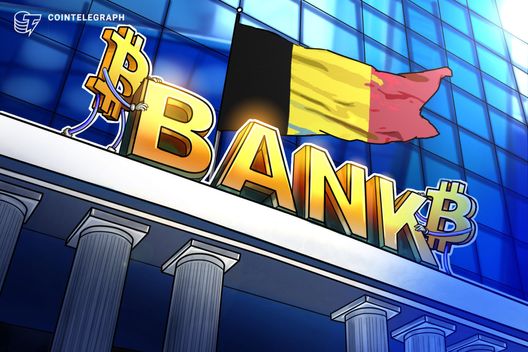

KBC Bank, a major Belgian financial institution, is reportedly planning to offer Bitcoin and Ether to its retail customers through its Bolero investment platform. This move would make KBC the first major Belgian bank to provide such services to retail investors. The bank anticipates securing regulatory approval by this autumn.
Currently, Belgian investors who wish to invest in cryptocurrencies typically use foreign platforms or neo-banks. These include international exchanges like Coinbase, Binance, and OKX, as well as crypto-friendly investment apps like Revolut and Bunq.
KBC's decision comes amid growing interest in cryptocurrencies in Belgium, particularly among younger investors. A recent survey by the Financial Services and Markets Authority (FSMA) found that 43% of Belgian investors under 29 already invest in crypto. For those under 30, the figure rises to 45%.
The bank's offering will focus on investor education, security, and regulatory compliance. KBC is currently seeking recognition as a crypto-asset service provider. A spokesperson for KBC confirmed that individual investors would be able to invest directly in Bitcoin and Ether in a secure environment.
Other major banks in Belgium, such as Belfius, ING, and BNP Paribas Fortis, have been more cautious about entering the crypto market. Only Belfius has expressed interest in exploring crypto through its Rebel platform. When asked by L'Echo, Belfius and ING said they were also looking into the possibility of doing so. BNP Paribas Fortis, for its part, said it had no plans to launch this type of service.
KBC's move aligns with the EU's new Markets in Crypto-Assets (MiCA) regulation, which sets uniform standards for crypto service providers across the bloc. The aim is to level the playing field and improve oversight, especially regarding anti-money laundering compliance. Bybit and OKX have already launched MiCA-compliant crypto exchanges in the EU. Additionally, AllUnity, a stablecoin joint venture by Deutsche Bank and DWS, has received a BaFin license in Germany to issue a MiCA-compliant euro stablecoin, EURAU.
The broader trend of European banks entering the crypto space is also evident in Germany, where Deutsche Bank and Sparkassen-Finanzgruppe are reportedly planning to debut crypto offerings in the coming months. The European Central Bank (ECB) will launch a blockchain settlement pilot by late 2026 under its new Pontes initiative, aiming to connect DLT platforms with the eurozone's core payment systems.